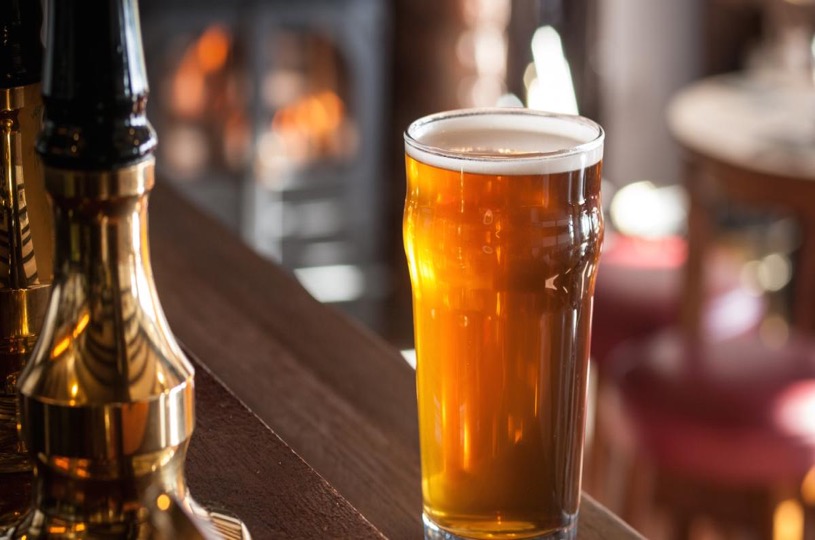Introduction
Traditional and Alternative Beer ingredients are becoming increasingly important to beer-drinking consumers. FMCG Gurus consumer insights have revealed that beer drinkers are more attentive to ingredients in beer. For example, when buying beer, 68% of consumers want reassurance that the highest quality ingredients are used. This reveals that consumers are more attentive and conscious about the ingredients in the products that they are consuming. The Covid-19 pandemic is a key component for this health conscious shift. This proactive and health boosting approach is seen through consumers altering their dietary and drinking habits. In addition, consumers are incorporating active approaches into their lifestyles.
Consumers are also conscious about the production processes of products and their environmental impact. To cater to this demand for both functional ingredients and sustainable initiatives across product supply chains, brands should incorporate story telling in their marketing. Consumers value insights into the heritage of beer brands. So, it is essential that beer brands use story based marketing to create transparency and notions of heritage. Also, this will enhance brand identity.

Promote Naturalness
The naturalness of ingredients and the impact of on ingredients on health play a key role in the attentive nature of consumers. This highlights the motivations around health. FMCG Gurus consumer insights has revealed 65% of consumers who have reduced their beer intake have done this due to health reasons. Our findings indicate that consumers are more conscious and adopting proactive approaches to improve their health. To address this, brands should ensure that products are promoting health claims and alternatives on their products to encourage the guilt-free consumption of beer.
In addition, beer-drinking consumers are expressing a desire for products that hold maximum quality and value. One way that brands can fulfil this is by avoiding chemicals, additives and artificial flavorings. Instead, brands should be promoting naturalness and the use of authentic ingredients to shape their products around perceptions of purity and great quality. FMCG Gurus consumer insights highlight that 52% of consumers believe that claims of natural flavors in beer are important. Moreover, a streamlined ingredient list enhances perceptions of purity and naturalness, as it presents minimal, recognisable and trusted ingredients. FMCG Gurus findings indicate that a long list of unfamiliar ingredients may generate scepticism among consumers.

The Sensory Element of Non-Alcoholic and Beer Alternatives
As a result of the health-conscious approach by many
consumers, beer-drinkers are changing their consumption habits. FMCG Gurus
consumer insights found that 27% of consumers have switched to low or
non-alcoholic beer alternatives. Our findings indicate that while the
non-alcoholic beer market is a sort of niche, it is also a growing market in
which brands should be attentive to and can capitalise on. This niche market
highlights that enjoyment and taste are top priorities for consumers when
consuming beer products, which has led to taste appeal being a key component
for manufacturers and brands to attentive to.
Growing health-consciousness among consumers has offered a key opportunity for the non-alcoholic beer market to capitalize on this. As a result, brands should ensure that they promote the sensory appeal of these products to add value to them. This will generate a greater demand for products in this market. Further to this health-conscious positioning of non-alcoholic beer, brands should promote aspects of avoidance and moderation. Examples of this can include the avoidance and moderation of certain ingredients in alcoholic beer. For example, FMCG Gurus consumer insights highlight that 58% of consumers who made changes to their drinking habits moderated their intake of beer.
In addition, our findings indicate that across the next three years, consumers are looking to pay more attention to the ingredients that are used in beer. To enhance these notions of health, the non-alcoholic beer industry should introduce more experimental flavors to spark an interest among adventurous consumers.
Story-Based Marketing
FMCG Gurus consumer insights highlight the significance of premium products with maximum quality. This perception of the premium is constructed by storytelling, which shapes brand heritage. This aligns with both environmental consciousness and health consciousness, as storytelling reveals how the product has been sourced and distributed. For instance, 69% of consumers agreed that they want the beer brands that they buy from to be as premium as possible. Further to this, consumers want reassurance from brands that products contain the highest quality ingredients. Also, the story and heritage behind beer brands appeals to consumers.
Lastly, a reasonable price and the offering of new and experimental flavors will increase consumer interest. This indicates that consumers are seeking out beer brands with story-telling which offers insight into the heritage of the brand and how the ingredients are sourced across the supply chain. If brands respond to this, story-based marketing will reassure consumers over the quality of the beer products and enhance the consumer’s perception of premium quality.
Story-based marketing positions beer brands as transparent and enhances brand identity and heritage. This ensures that brands are promoting elements such as sustainability initiatives and functional ingredients. Including these elements will help to differentiate these brands from their competition within the beer market, increasing consumer appeal.
